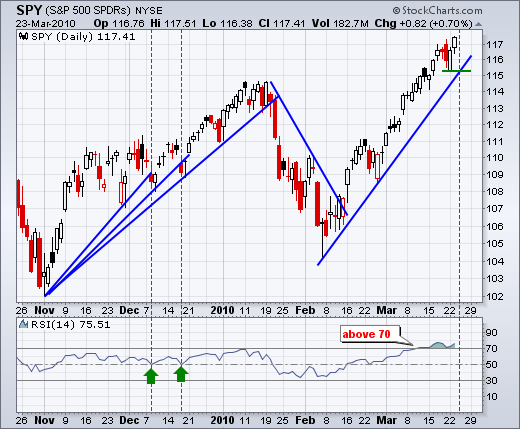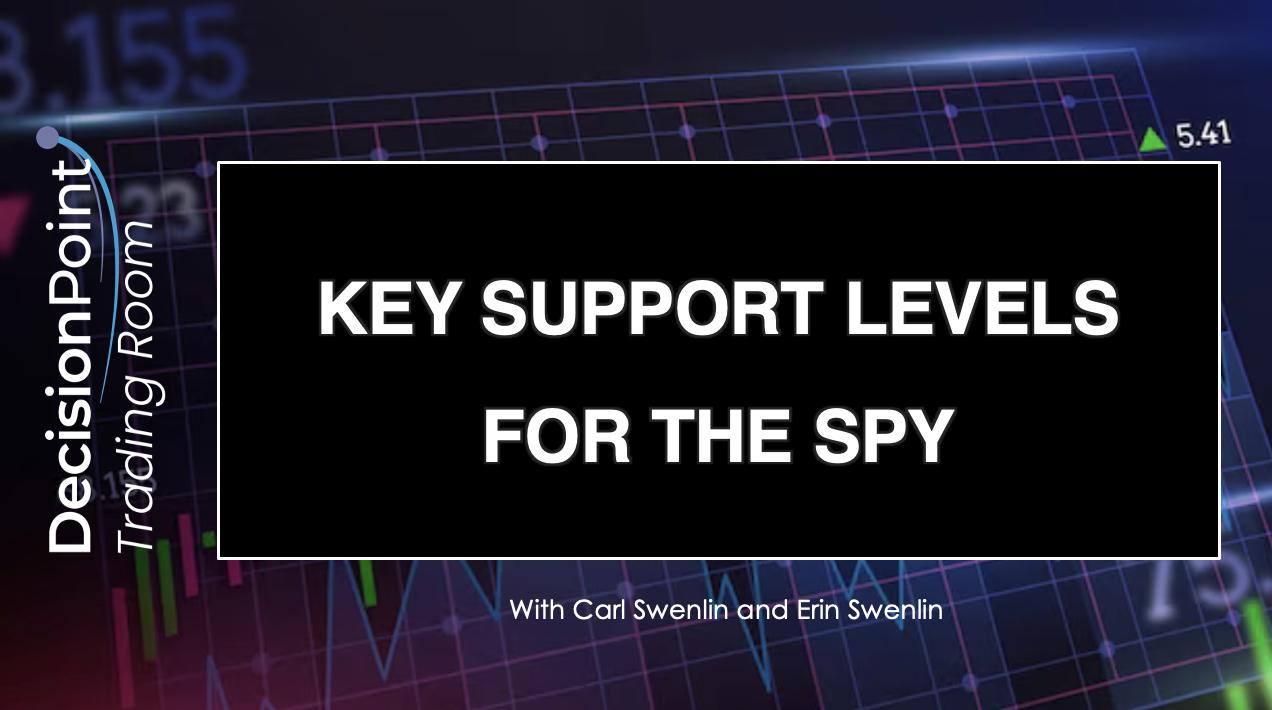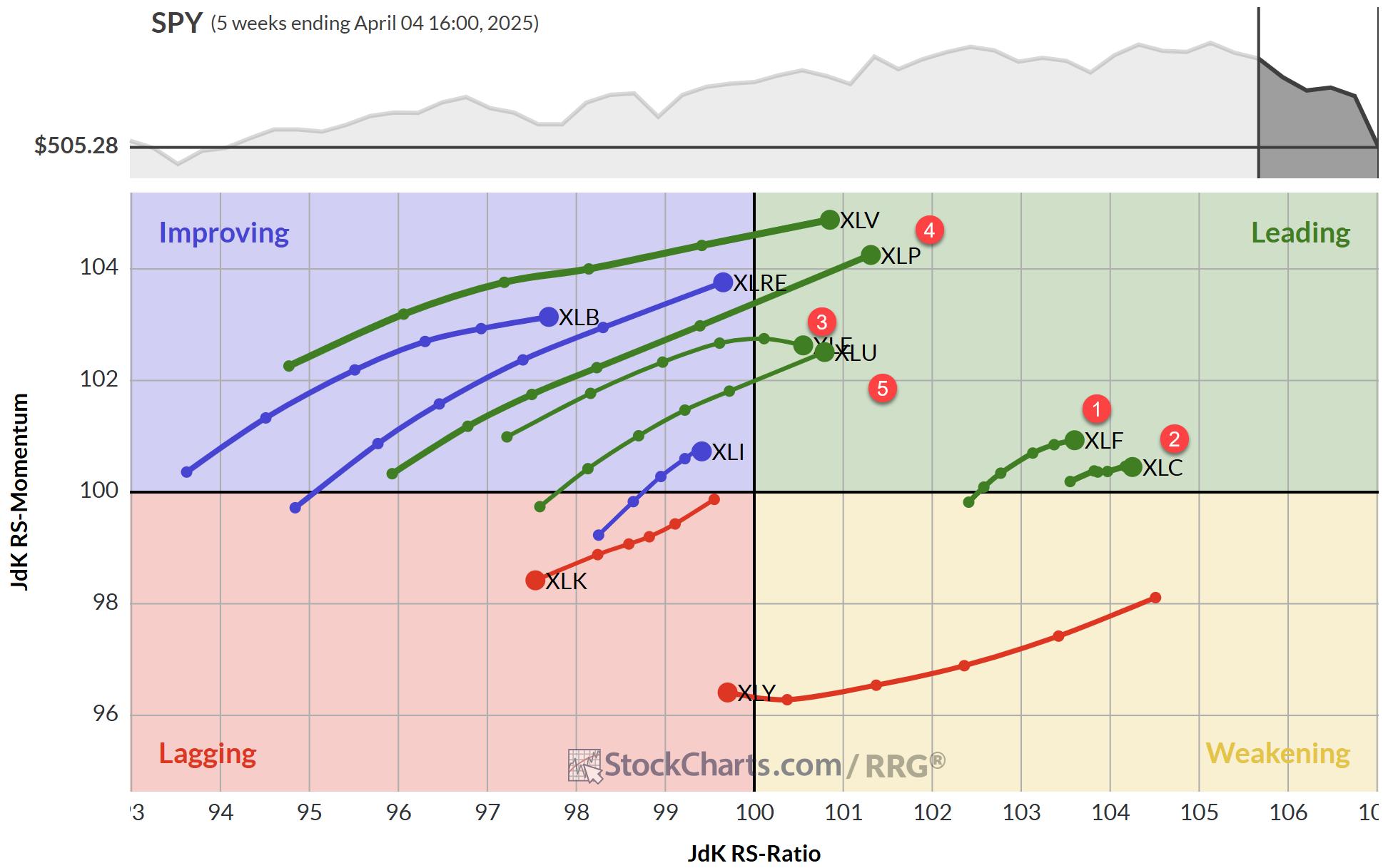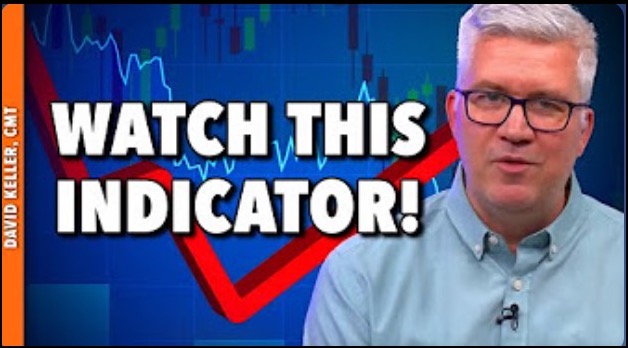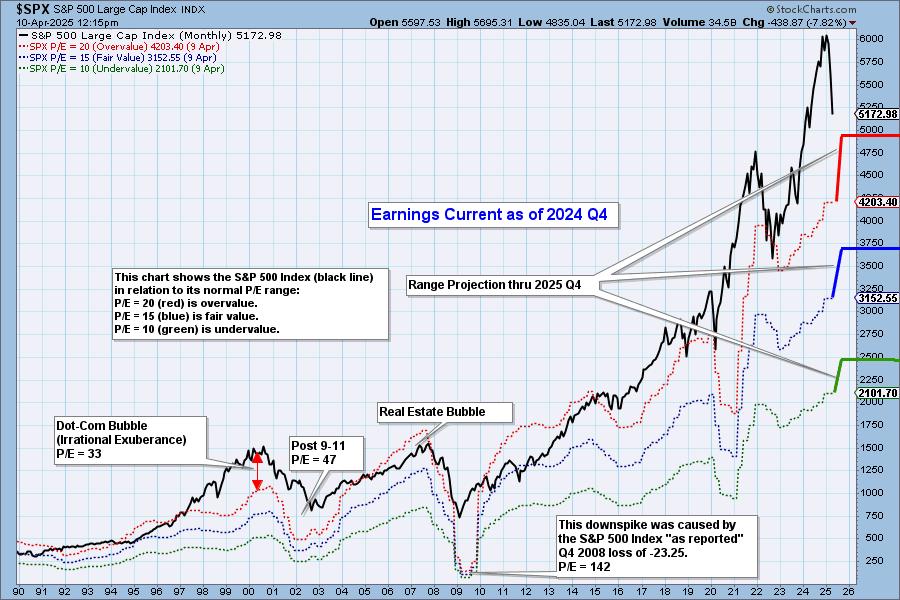There it is again. After one long red candlestick, SPY opened weak and closed strong. This intraday reversal was followed by further gains on Tuesday as the ETF moved above 117 for the first time since September 2008, which was when Lehman declared bankruptcy. The pink circle shows the prior time SPY formed a long red candlestick, reversal day and surge. There is not real change on the daily chart. The blue trendline defines the current up swing and swing support is set at 115. RSI is overbought, but remains overbought as the uptrend continues.
The 60-minute chart captures the entire advance since February. With a new high on Tuesday, I extended the Raff Regression Channel. It is rare for this indicator to so perfectly capture an advance. The middle line is a linear regression. The outer lines are equidistant from the furthest reaction high or low. In this case, the flag low in late February sets the lower trendline and the upper trendline is equidistant from the linear regression. No trend change here until SPY breaks below 115.
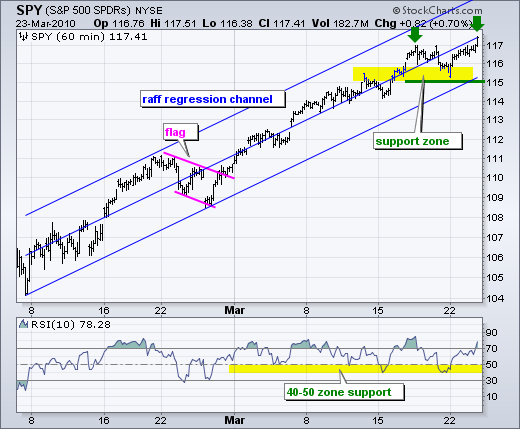
Wed - Mar 24 08:30 Durable Orders
Wed - Mar 24 10:00 New Home Sales
Wed - Mar 24 10:30 Crude Inventories
Thu - Mar 25 08:30 Initial Claims
Thu - Mar 25 08:30 Natural Gas Inventories
Fri - Mar 26 08:30 GDP
Fri - Mar 26 09:55 Michigan Sentiment
Charts of Interest: AMZN, ASEI, CQB, DF, GT, LEN, NYT
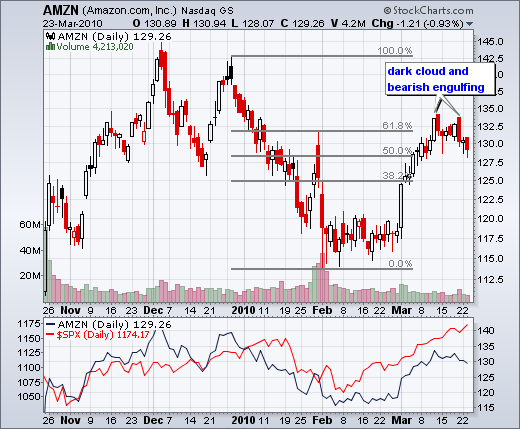
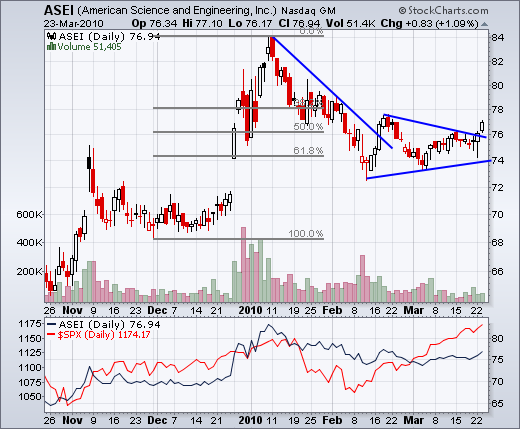
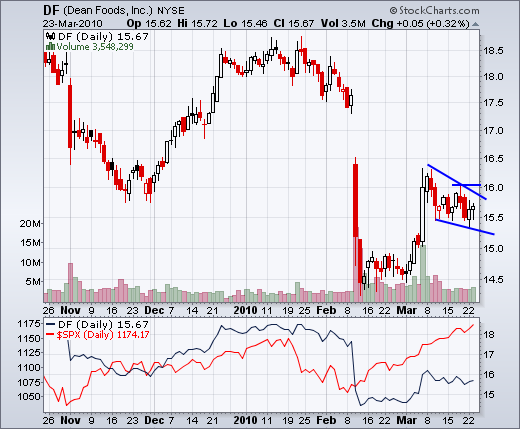
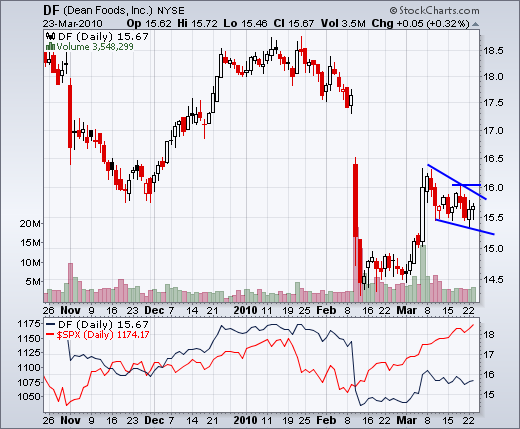
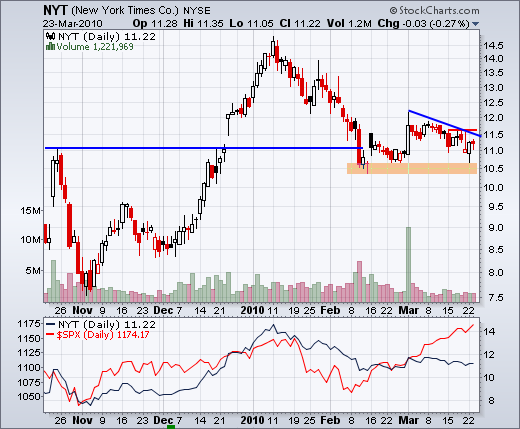
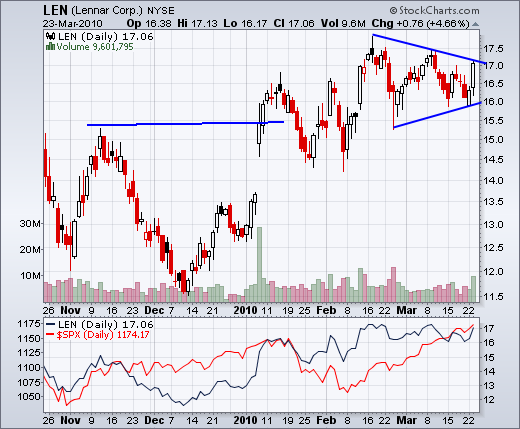
This commentary and charts-of-interest are designed to stimulate thinking. This analysis is not a recommendation to buy, sell, hold or sell short any security (stock ETF or otherwise). We all need to think for ourselves when it comes to trading our own accounts. First, it is the only way to really learn. Second, we are the only ones responsible for our decisions. Think of these charts as food for further analysis. Before making a trade, it is important to have a plan. Plan the trade and trade the plan. Among other things, this includes setting a trigger level, a target area and a stop-loss level. It is also important to plan for three possible price movements: advance, decline or sideways. Have a plan for all three scenarios BEFORE making the trade. Consider possible holding times. And finally, look at overall market conditions and sector/industry performance.

Wed - Mar 24 08:30 Durable Orders
Wed - Mar 24 10:00 New Home Sales
Wed - Mar 24 10:30 Crude Inventories
Thu - Mar 25 08:30 Initial Claims
Thu - Mar 25 08:30 Natural Gas Inventories
Fri - Mar 26 08:30 GDP
Fri - Mar 26 09:55 Michigan Sentiment
Charts of Interest: AMZN, ASEI, CQB, DF, GT, LEN, NYT






This commentary and charts-of-interest are designed to stimulate thinking. This analysis is not a recommendation to buy, sell, hold or sell short any security (stock ETF or otherwise). We all need to think for ourselves when it comes to trading our own accounts. First, it is the only way to really learn. Second, we are the only ones responsible for our decisions. Think of these charts as food for further analysis. Before making a trade, it is important to have a plan. Plan the trade and trade the plan. Among other things, this includes setting a trigger level, a target area and a stop-loss level. It is also important to plan for three possible price movements: advance, decline or sideways. Have a plan for all three scenarios BEFORE making the trade. Consider possible holding times. And finally, look at overall market conditions and sector/industry performance.

About the author:
Arthur Hill, CMT, is the Chief Technical Strategist at TrendInvestorPro.com. Focusing predominantly on US equities and ETFs, his systematic approach of identifying trend, finding signals within the trend, and setting key price levels has made him an esteemed market technician. Arthur has written articles for numerous financial publications including Barrons and Stocks & Commodities Magazine. In addition to his Chartered Market Technician (CMT) designation, he holds an MBA from the Cass Business School at City University in London.
Learn More
